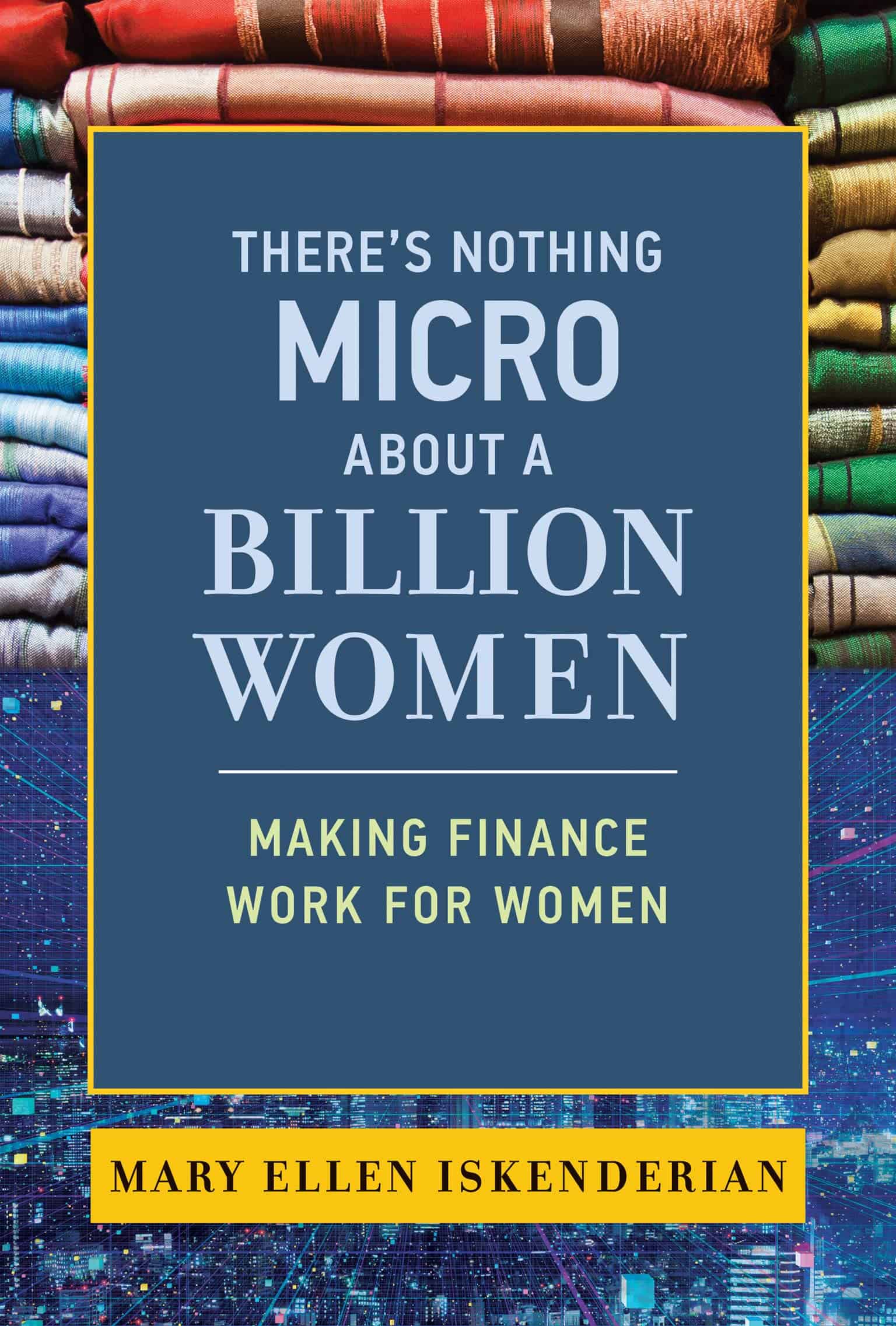Why it takes more than microloans to empower women and promote sustainable, inclusive economic growth.
“In her book, Mary Ellen Iskenderian reminds us to ask where our bank finance flows and how much is used for building unequal wealth or destructive institutions that harm humans and the natural environment. How do we promote ‘nurturing finance’ that eliminates violence and inequalities and brings peace to the people and society? Women’s financial inclusion, with its focus on the community rather than the individual, is part of the answer.” –Ela Bhatt, founder of India’s Self-Employed Women’s Association (SEWA)
“Mary Ellen Iskenderian makes a persuasive case for why giving women access to financial services will transform their lives and their societies. This book combines inspiring stories, rigorous evidence, and decades of wisdom from working on financial inclusion. A great read that will make you feel hopeful about the transformative power of finance for women.” –Minouche Shafik, Director, London School of Economics; author of What We Owe Each Other
Nearly one billion women have been completely excluded from the formal financial system. Without even a bank account in their own names, they lack the basic services most of us take for granted—secure ways to save money, pay bills, and get credit. Exclusion from the formal financial system means they are economic outsiders, unable to benefit from, or contribute to, economic growth. Microfinance has been hailed as an economic lifeline for women in developing countries—but, as Mary Ellen Iskenderian shows in this book, it takes more than microloans to empower women and promote sustainable, inclusive economic growth.

Mary Ellen Iskenderian is President and CEO of Women’s World Banking, a global nonprofit devoted to giving more low-income women access to financial tools and resources they need for both security and prosperity.
Learn more and purchase here.
For more information, contact:
Johanna Ramos-Boyer, JRB Communications, LLC | 703-646-5137 | johanna@jrbpr.biz
Molly Grote at the MIT Press: mgrote@mit.edu



